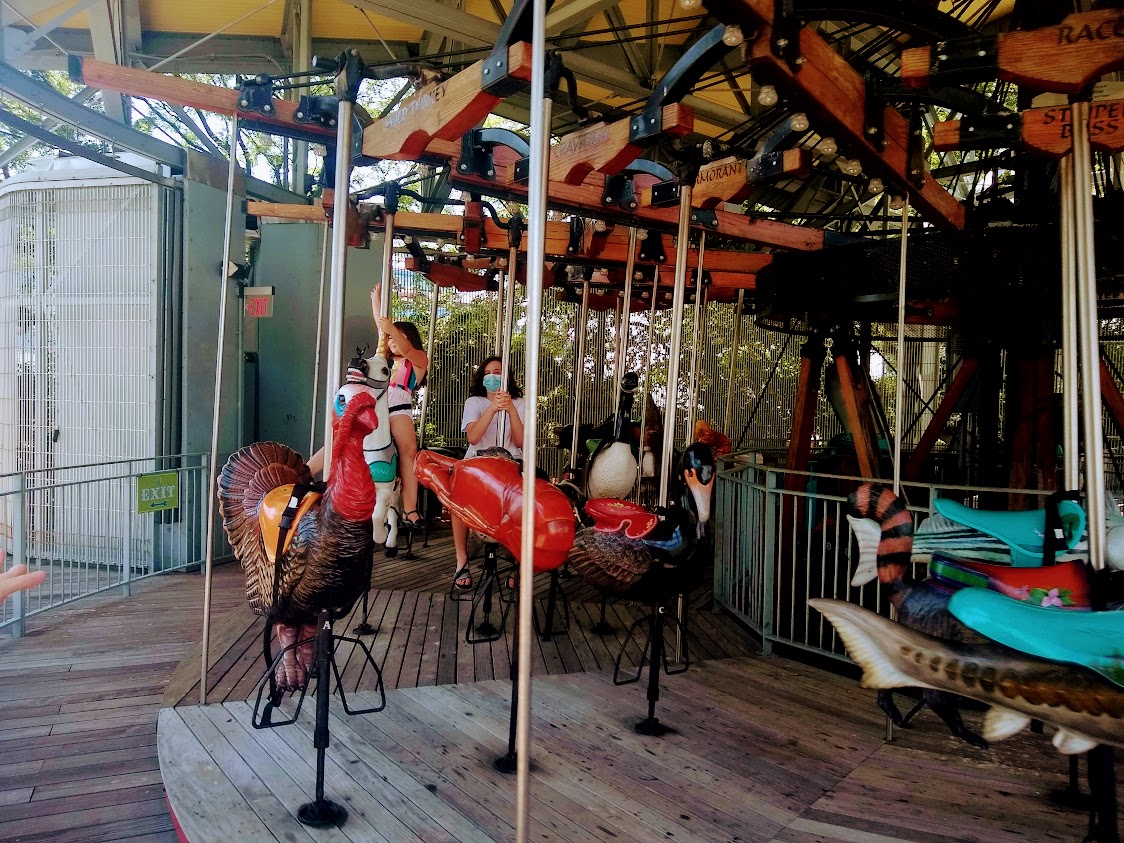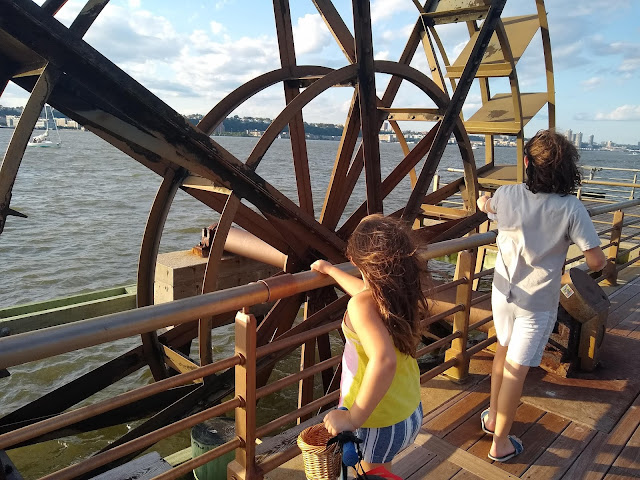Thoughts on reading/writing/technology

I laughed out loud to myself at the playground reading Sherry Turkle confess her compulsive email-checking in Alone Together. The entire book is basically about how we are too attached to technology and how it is changing our relationships and ourselves. She's written at least three other books on the topic. But here is this brilliant MIT professor admitting,
"I check my e-mail first thing in the morning and before going to bed at night. I have come to learn that informing myself about new professional problems and demands is not a good way to start or end my day, but my practice unhappily continues" (154).The book pubbed in 2011. I wonder if she's still as focused on email or if her attention has migrated to texting/social media as it has for so many others. She talks about the alone-ness of social spaces, now:
"In this new regime, a train station (like an airport, a cafe, or a park) is no longer a communal space but a place of social collection: people come together but do not speak to each other. Each is tethered to a mobile device and to the people and places to which that device serves as a portal" (155).
Yet I also wonder if, cyborgs that we are, we are more connected in some ways than we appear. As Bearette commented here, looks may be deceiving. She referenced a cartoon that compared the isolation of past commuters reading newspapers on the train unfavorably to today's commuters sending personal messages. And here I am reading and writing in the playground. I deliberately chose a spot by myself. I could have sat next to neighborhood friends, talked about the election or the upcoming Halloween party. I could have participated in the shared space, but I chose not to. Reading seemed maybe okay, but laughing out loud at the book made me feel like maybe I had gone too far into my own world. Writing takes it that much further.
I am hyper-critical of the hyper-connected, always somewhere other than where they are. Yet in reading novels, isn't that our fantasy? In writing too.
At the end of Alone Together, Turkle remembers the letters she and her mother wrote to each other when she was a freshman in college. She compares those letters, full of meaning, to the fleeting, somewhat impersonal but constant contact with her daughter, now away from home for the first time. The Skype calls where you don't make eye contact, the brief, up-to-the-minute texts. She realizes this current form of communication could be saved, but it would create an overwhelmed amount of archived material. (She also comments on the inauthenticity that might creep in once archiving begins.) Would all that material mean as much?
Most of her book is not personal essay. Her focus is research, observations on technology and its distancing effects. I'm less interested in her study of robotics and simulation games, and more interested in what I think of as everyday hybridity, at its most basic, the use of smartphones. The potential pitfalls and pathologies of robotics and simulation seem more obvious and somewhat limited in scope. Meanwhile the smartphone compulsion is more of a deep entanglement, with porous borders, less obvious effects. The smartphone compulsion is everywhere - in Turkle herself, in me, even now that I am off Facebook, and don't have any apps on my phone other than email. Even though I am notoriously unreachable by phone, always losing it on purpose. (Turkle's argument for a return to real conversation, including the phone, makes me realize how much I've eschewed it in the past. I felt overwhelmed by it at times, sometimes grrred when I saw my grandmother Miriam "tracking me down." Is it reasonable, then, to now feel nostalgic for the days of the phone? I did, mostly enjoy it, though I wanted to limit its use somewhat.
Turkle's description of parents with their phones at the dinner table, constantly googling stuff and bringing it into the conversation, is chilling. How often do I turn to something online? Whether it's a fact or definition or song. Not during dinner, but so many other times. The children and adolescents Turkle studies are eloquent about how disturbing they find googling for an answer. They don't want the answer. They want attention. I too have felt disheartened when someone ends a discussion with "it's googlable" but there are many times my instinct is to find something out instantaneously, too.
I wondered -- have I brought the phone to the table? I don't think so. Not during an actual sit down dinner, but probably during half meals (when say one kid is eating or having a snack) I've attended to something on the phone. My logic is that I'm extending myself to sit with the child when I really need to be doing something else. It would be like doing dishes, say, while they're eating, but it's so much worse in terms of the distraction, the blank face.
What about being on the phone while Wally gets off the bus? I do that all the time, quickly wrapping up the conversation with a relative or my physics professor friend (pretty much the only people who still use the phone, at least with me) as I wave thank you to the bus drive. Wally's been away for over 7 hours; can't I give him my full attention? How many times have I unnecessarily checked email after dinner? It can wait until after the kids go to bed. Even all the texting plan-making with neighborhood friends. That's in the kids' interest. But how disjointed must that seem as we're walking from the farmer's market or heading to the playground? The "we're at the playground" text easily spirals into a conversation with someone who can't meet but wants to figure out a plan for another time.
The book has absolutely made me rethink my use of technology. Just because I'm not as addicted (in my judgement) as many others around me who put the phone on the table, on their lap, hold it in their hand as they walk down the street like a baby blanket or pacifier, shift their eyes from me to the phone now without apology when we talk, doesn't mean there is not drastic room for improvement. My own shadow is what I see in these people, after all, as Carl Jung would be the first to point out. It's your shadow that bothers you the most.
And what of reading at the playground? Writing anytime at all? Writing pulls and tugs at me if I don't get to it daily. It nags, it itches. Writing does allow me a much better focus. Is that a healthy habit? Where does it cross into its own kind of compulsion? Why can't I find peace of mind without it?
Many questions, as we head out soon for the country.
This is a rough post. Too rough to hit "publish" and yet I have the nagging feel of not having posted enough lately. (At the same time I can hear a friend's voice saying, "I can't keep up with your blog!" who maybe would welcome the respite.) I don't know what "enough" is on a blog. I suppose what irks me too is I have at least five drafts recently started on various topics. Interrupted. Unfinished thoughts. So this isn't finished; it's really only begun. Yet more and more I am okay with that form of a blog. The roughness. The realness (still a performance, though, if not as pithy and coordinated and cultivated as other kinds online formats). The snapshot moment. Knowing I'm here now.


I am really feeling this post this morning. My brain is completely burnt out on social media and election coverage. I've been a total phone addict the last few days. And my mood plummets.
ReplyDeleteTwo weeks ago I had to speed-read and critique a bunch of manuscripts in time for a workshop. I read the hardcopy while pushing Isabella on the swing. I wondered, did that look better than reading on my phone? She is content to swing endlessly, so I think she was actually quite happy. I might've gotten a few strange looks. Lately at the playground, I spend half of my time engaged with her and the other half checking my phone, accomplishing what little I can, sometimes getting sucked into social media. I figure the 50% of the time I'm disengaged prevents me from becoming a helicopter parent. I don't know... But I hear you. And I'm not sure what the answer is, except that less time on our phones seems better for us all.
I can also relate to these questions about writing... is it a healthy habit? When does it cross into its own kind of compulsion? And I'm constantly asking, is it worth all this time? What will become of these piles of words? What is the value? How do I justify it?
I didn't think this post was rough at all, and I'm so glad you hit publish. I hope you're enjoying your time out in the country!
Thanks so much Sarah for your ever-thoughtful and supportive comments. I almost always feel that too - media addiction/consumption-->plummeting mood. My instinct would be to view the hardcopy manuscript critique while swinging toddler as infinitely better than phone-reading. The assumption (for me) is that you have to read the manuscript or at least doing so moves your writer/professional goals forward where as phone-reading looks like someone who just can't stand the boredom of toddler world. I wonder how often I'm wrong when I make that assumption. It's funny how hard copies get much stranger looks from others. Even a physical book seems to be met with stares/comments where as constant phone checks never do.
ReplyDeleteYour piles of words are definitely worth it.
The country...so much to say about it. (After 2 unplugged days the kids came back so content to play/read/draw/make up projects...totally on their own...immersed...no questions about screens or shows...AGHHHH....shows me how really dramatic the impact can be.)
Thanks for the shout-out :)
ReplyDelete